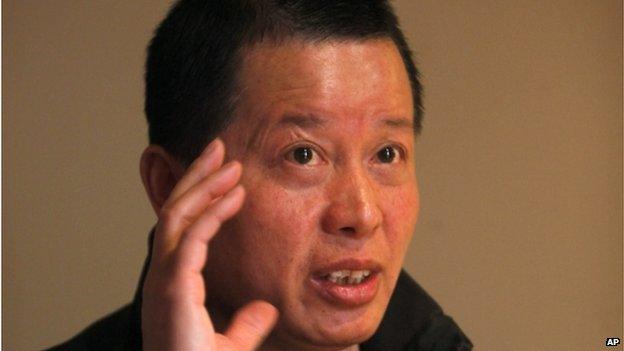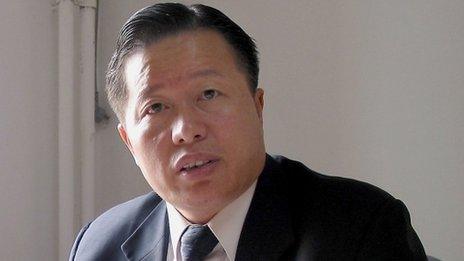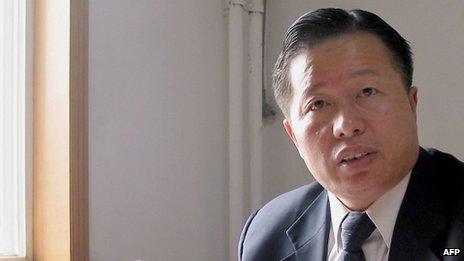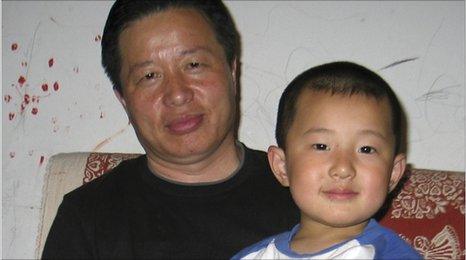Chinese dissident Gao Zhisheng released from prison
- Published

Gao Zhisheng is a prominent human rights lawyer and dissident
One of China's most prominent dissidents, Gao Zhisheng, has been released after three years in jail.
His brother said he left the Xinjiang prison on Thursday morning and was now at his father-in-law's home in Urumqi.
Fellow activist and close friend Hu Jia told BBC Chinese that Mr Gao was seeking dental treatment in Urumqi, the region's capital.
Mr Gao, a prominent human rights lawyer, was arrested in early 2009. He was accused of inciting subversion.
He was released briefly in 2010, and claimed he was tortured while in detention. Shortly after that he disappeared again.
State media subsequently said in 2011 he would be jailed for three years for violating probation rules.
Mr Hu told the BBC that Mr Gao is "having problems with his teeth" but is expected to head to his hometown in north Shaanxi province after having treatment.

Gao Zhisheng timeline
•2005: Authorities close down Gao Zhisheng's law practice
•Dec 2006: Convicted of subversion and sentenced to house arrest
•Sept 2007: Says he was tortured during a period of detention
•Jan 2009: Disappears; last seen accompanied by security officials
•Mar 2010: Reappeared for a month before disappearing again
•Dec 2011: State media says he has been jailed for three years
•Jan 2012: Gao revealed to be in Xinjiang prison
•August 2014: Gao freed from jail

'Loose teeth'
The Associated Press reported that Mr Gao's wife, Geng He, spoke to her husband later on Thursday.
Ms Geng and the couple's two children are in the United States where they sought asylum in early 2009.
She told AP that it was clear there were security minders present as she could hear unfamiliar voices in the background.
He told her that his teeth were in "bad shape". Relatives told her that half a dozen of Mr Gao's teeth were loose and he could not bite into the steamed buns he received as food in prison.
Mr Gao is an outspoken critic of the Chinese government, and has defended activists and religious minorities in the past. He was nominated for the Nobel Peace Prize in 2008 for his work.
He is known for campaigning for religious freedom, particularly for members of the banned group Falun Gong.
The US, European Union and United Nations had repeatedly called on the Chinese authorities to release him.
- Published2 January 2012

- Published16 December 2011

- Published30 June 2011
